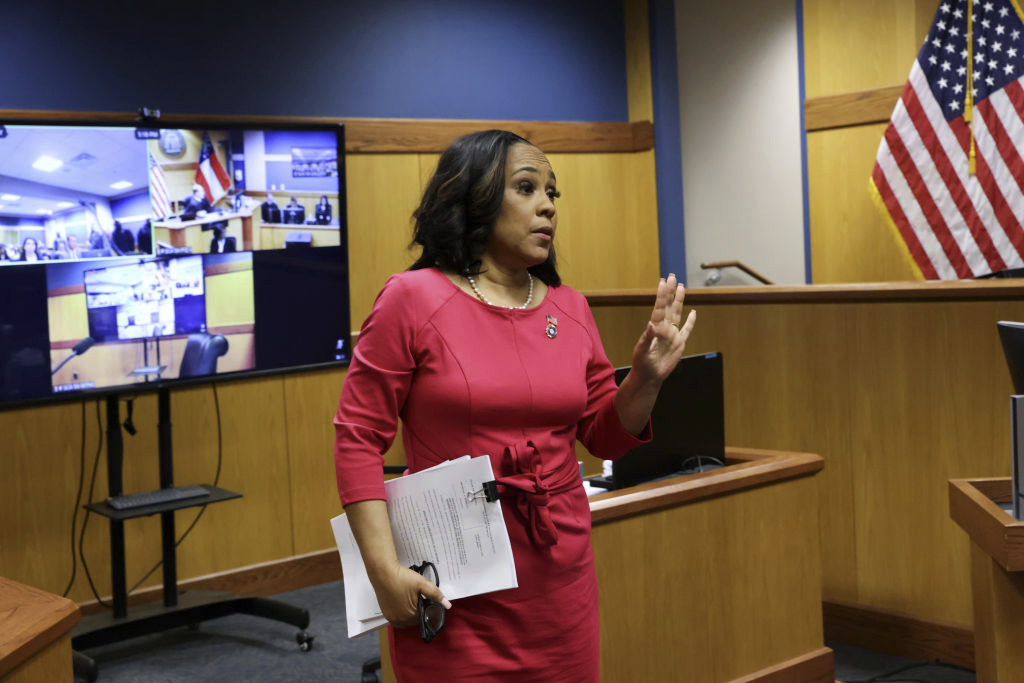
Just as predicted, Judge Scott McAfee tried to cut the baby in half, but the baby died, because his split-the-difference opinion makes absolutely no sense legally or factually.
It is obvious that Judge McAfee started his decision-making process by deciding the result he wanted: disqualifying special prosecutor Nathan Wade, but retaining Fulton County District Attorney Fani Willis and her entire office. In order to reach that bizarre result, he had to rely on the testimony of Willis, which he knew was totally untruthful.
Yes, he made an express finding that there are "reasonable questions" about whether the District Attorney and her hand-selected lead Special Assistant District Attorney testified untruthfully about the timing of their relationship. In general, he found that "an odor of mendacity remains." Yet, after making those devastating findings about the dishonesty of Willis, he said he believed her testimony rejecting financial gain. He found that it was "not so incredible as to be inherently unbelievable."
Any reasonable person, however, watching her contrived testimony along with that of her former lover, could not reasonably conclude that they were telling the truth. It seems completely clear that she benefited financially from appointing Wade and then going on numerous trips, which records prove he paid for. Her testimony that she paid him back in cash was "unbelievable" to any objective viewer.
Under Georgia rules, a district attorney may not accept financial benefits from anybody she hires. She knew that, and she also knew that someday she might be asked to prove that she paid her former lover back, yet she maintained no records of her alleged payments: no bank withdrawals, no photographs of the money she allegedly paid, not even notations in her calendar. No jury would believe that Willis in fact paid him back.
Any reasonable jury would also fail to believe that Willis did not commit perjury when she swore that her sexual relationship with Wade began after she hired him rather than before. The combination of cell phone records and testimony prove that point beyond any reasonable doubt.
There are hundreds of people in prison today, perhaps even some on death row, based on evidence not nearly as strong as that which would prove a perjury case against both Willis and Wade, but no criminal investigation has been opened against either of them.
"Who will guard the guardians?" asked the Roman philosopher, Juvenal. We must ask today: Who will prosecute the prosecutors? There is great irony and hypocrisy in Willis prosecuting former President Donald Trump and others based on far less evidence than exists against Willis.
Judge McAfee expressly found that there was an appearance of conflict. There is also an obvious appearance of impropriety and injustice. That should be enough to disqualify a prosecutor. He also found that he had the power under Georgia law to disqualify Willis based on this appearance. Yet he exercised his discretion and decided instead to offer her the choice of either being disqualified or firing Wade. He knew of course that she would choose the latter, as she did. There should not have been any choice. Willis is the responsible elected official who created this problem. It was she who exercised horrendous judgment. It was she who benefited from hiring her lover and then taking trips that he paid for, and it was she who should have been disqualified.
There are still options for the defense to pursue in an effort to disqualify Willis. They can try to seek an appellate remedy. They can take the matter to the bar association or other appropriate institutions. The bottom line is that this case should not go to trial with her in charge of the prosecution. The defendants deserve better, and the public deserves better.
Alan M. Dershowitz is the Felix Frankfurter Professor of Law, Emeritus at Harvard Law School, and the author most recently of War Against the Jews: How to End Hamas Barbarism. He is the Jack Roth Charitable Foundation Fellow at Gatestone Institute, and is also the host of "The Dershow" podcast.


